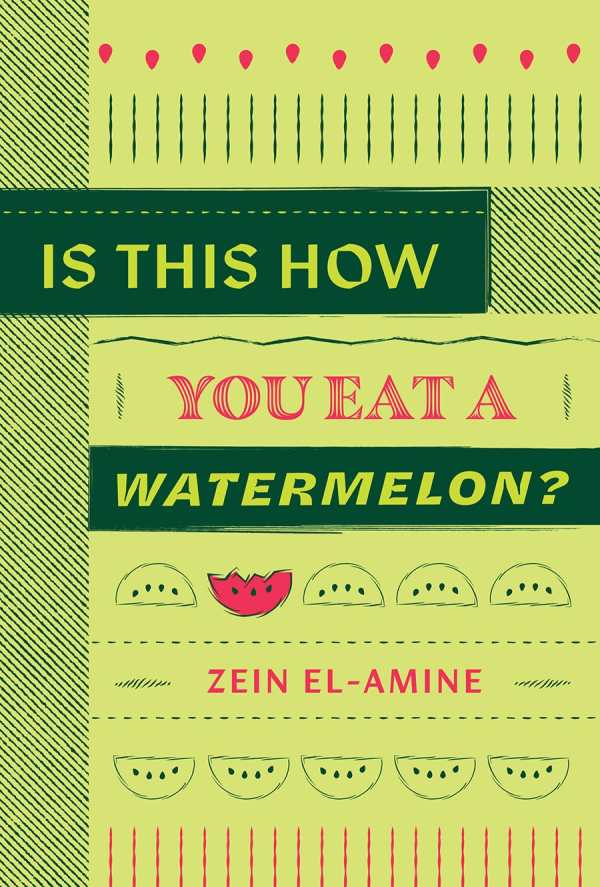Is This How You Eat a Watermelon?
In Zein El-Amine’s short story collection Is This How You Eat a Watermelon?, the Lebanese civil war leads to disrupted lives and ghost sightings.
Herein, war is more complicated than mere acts of violence. Enemy drones hover above neighborhoods; the facts of the war permeate even innocent activities, like building a snowman. People experience moments of despair: in “Send My Regards to Your Mother,” a man is arrested for driving in the wrong place at the wrong time and worries that he will be trapped in prison. Other people are discomfited by peaceful moments: in “The Birds of Achrafieh,” a woman evacuates a school and finds safety, but others are left behind her. Hope is found between fearful moments, and those who survive the war are still at risk of being haunted by their experiences during it.
Anchored in moments that warrant remembrance, these are stories with unfinished edges. In “Killdeer,” a man turns around, returning to the place that he fled in order to retrieve his keys and eschewing the safety that he seemed on the verge of achieving. The story raises the question of whether anyone is truly safe in war’s aftermath. Other characters find solace in laughter: in the title story, a man teaches his youngest daughter to eat a watermelon, and the moment is a reminder that beauty persists regardless of their circumstances. Still, each of the stories concludes on a similar note: even when their events end, the effects of the war upon their characters have not, and individual satisfaction remains elusive.
The imaginative short stories collected in Is This How You Eat a Watermelon? cover tragic wartime events in a humanizing manner.
Reviewed by
Addissyn House
Disclosure: This article is not an endorsement, but a review. The publisher of this book provided free copies of the book to have their book reviewed by a professional reviewer. No fee was paid by the publisher for this review. Foreword Reviews only recommends books that we love. Foreword Magazine, Inc. is disclosing this in accordance with the Federal Trade Commission’s 16 CFR, Part 255.

